Intro to FinTech
MBA F741
Instructor: Katya Malinova
Lecture 2


This slide deck was developed in collaboration with Andreas Park (University of Toronto)
What is a blockchain?
Questions we wish to address
What economic problem does it solve?
How does it apply to finance?
How does it work?
Learning Objectives
- most online resources and books are
- either too shallow and written by evangelists
- or too technical and written by & for developers
- or plainly obnoxious and written by crypto-peddlers
- our goal:
- an intro to the concepts and functioning of blockchains
- understanding of key concepts
- ability to assess pros/cons and possible use cases
- identify challenges for applications
- understand regulatory restrictions/implications
Today?
How does it apply to finance?
Will talk about trading and raising funds using blockchain
Why should we care?

Why should we care?
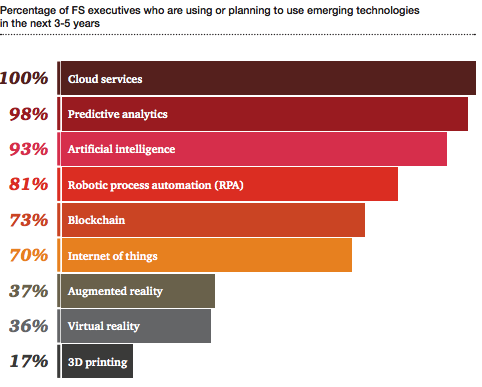
Source: "Unlocking the human opportunity: Future-proof skills to move financial services forward"; PwC report for the Toronto Financial Services Alliance, April 2018
What does a blockchain do?
only the first 1:16 min are relevant
What happened?



exchange needed TRUST
What's needed for trust in anonymous deals?
Authority
Execution
Continuity
Authority
Do you have the item?
Do you have power over it?
A Key Tool: cryptography
Execution
Can we agree that it happened?
Tool:
consensus algorithm
Security
Are the records immutable?
restricted permissions
really difficult to hack
historically:
commerce requires trusted parties
trustworthy people
long-term relationships
reputation
contract
law
premise of blockchain
no trusted parties needed
everything
in code
open to
anyone
platform or network
commerce thrives
How?
Cryptography: only Sue can spend her money
Authority
Execution
Problem: double-spending
How can we trust that
- sale happened and
- $$ only spent once?
Execution
Security
Blockchain?
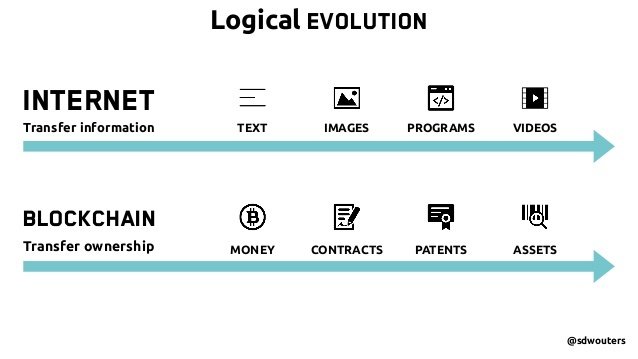
- Social Media
- eCommerce
- Uber, AirBnB
- ......
- ?????
Detour: Bitcoin vs. Ethereum
first full application of a working public, permissionless blockchain
Bitcoin
Can't do much other than transfer stickers (exception: "coloured coins")
- Ethereum = Blockchain 2.0:
-
"virtual computer" for decentralized code execution
- E.g., an auto-executing escrow code.
- code execution \(\rightarrow\) require computing power
- malicious code could "crash" virtual machine
- \(\to\) pay in Ether for computations (for "gas")
- Ether is not a "better" cryptocurrency
Ethereum = Blockchain 2.0
Sue wants to send Bob money
Illustration of Infrastructure Frictions: money transfers
Version 1: They use the same bank
Change ledger entry locally
Version 2: They use different banks but the banks have a direct relationship
Sue's bank transfers from Sue's account to Bob's bank's account
Bob's bank transfers from its account to Bob's account
Version 3: They use different banks that have no direct relationship
Sue's bank transfers from Sue's account to its own account
Bob's bank transfers from its account to Bob's account
Central Bank
Central bank transfers from Sue's bank's account to Bob's bank's account
International transfers
Sue's bank transfers from Sue's account to its own account
Bob's bank transfers from its account to Bob's account
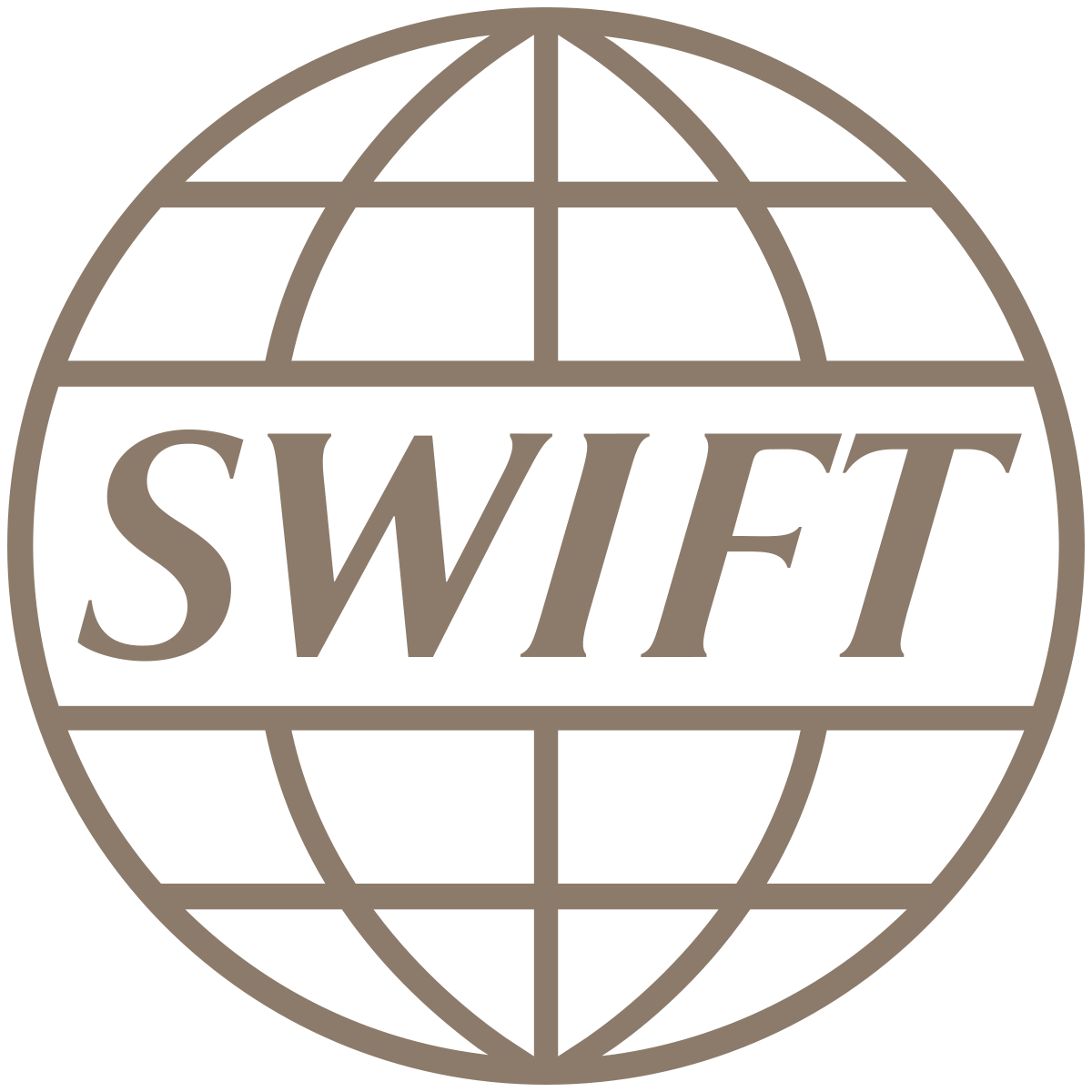
use the Swift network of correspondent banks
Bottom Line
-
very complex
-
many parties
-
lots of friction
-
expensive
Crazy thought:
Wouldn't it be nice if there was a single ledger?
Here follows an in-class demonstration of a transfer
(hopefully!)
Public Information about my address
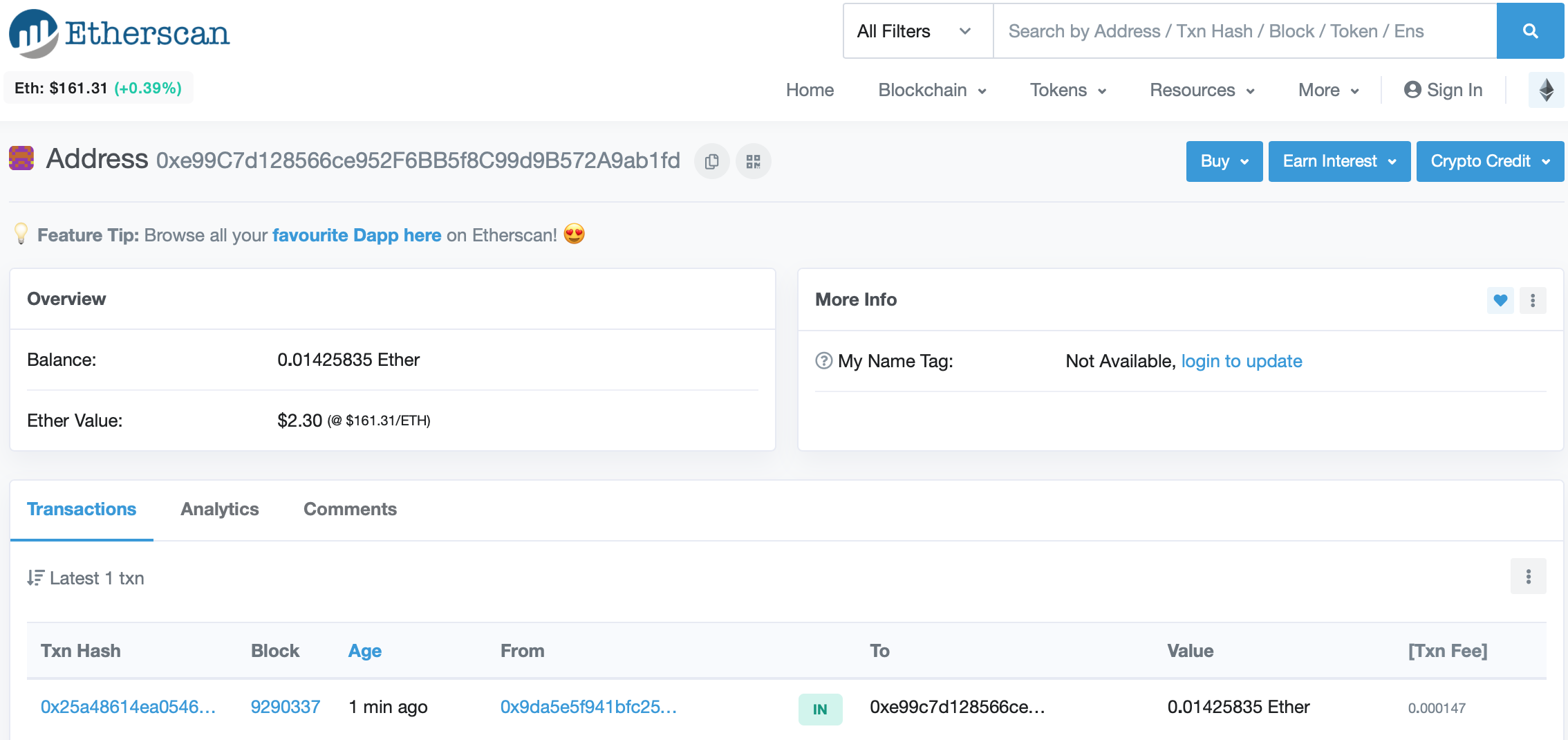
Detour: how do you get cryptocurrencies



Step 1:
send dollars to (say) coinbase using a bank transfer of a credit card
Step 2:
convert dollars to cryptocurrency at
Step 3:
send crypto to blockchain address
0xa65d00eda4eeb020754c18e021b1bf4e66c9ed90
0xe99C7d128566ce952F6BB5f8C99d9B572A9ab1fd
Below are examples of my three different demo addresses, from: myeitherwallet, Metamask, and Jaxx Liberty.

A glimpse of a stock trade today
Alice wants to sell ABX
Bob wants to buy ABX
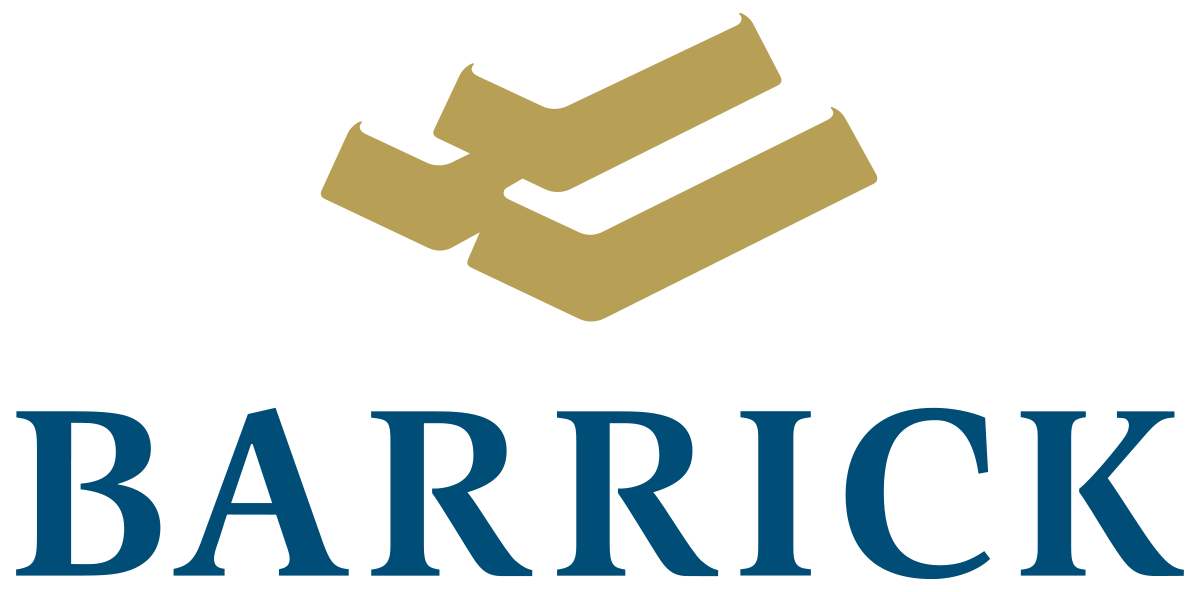
sell order
buy order



Clearing House
Stock Exchange
Broker
Broker

3rd party tech
custodian
custodian

record beneficial ownership
central bank for payment
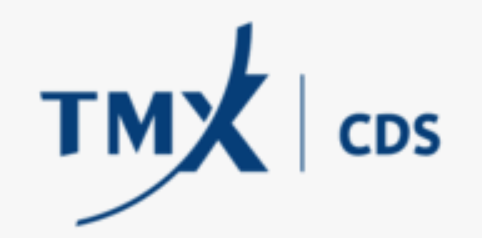
Strongest feature
digital contracts
With Blockchain: single ledger for money and securities

0xA69958C146C18C1A015FDFdC85DF20Ee1BB312Bc
0x91C44E74EbF75bAA81A45dC589443194d2EBa84B
0xA65D00Eda4eEB020754C18e021b1bF4E66C9Ed90
What is a token?

You can create your own token
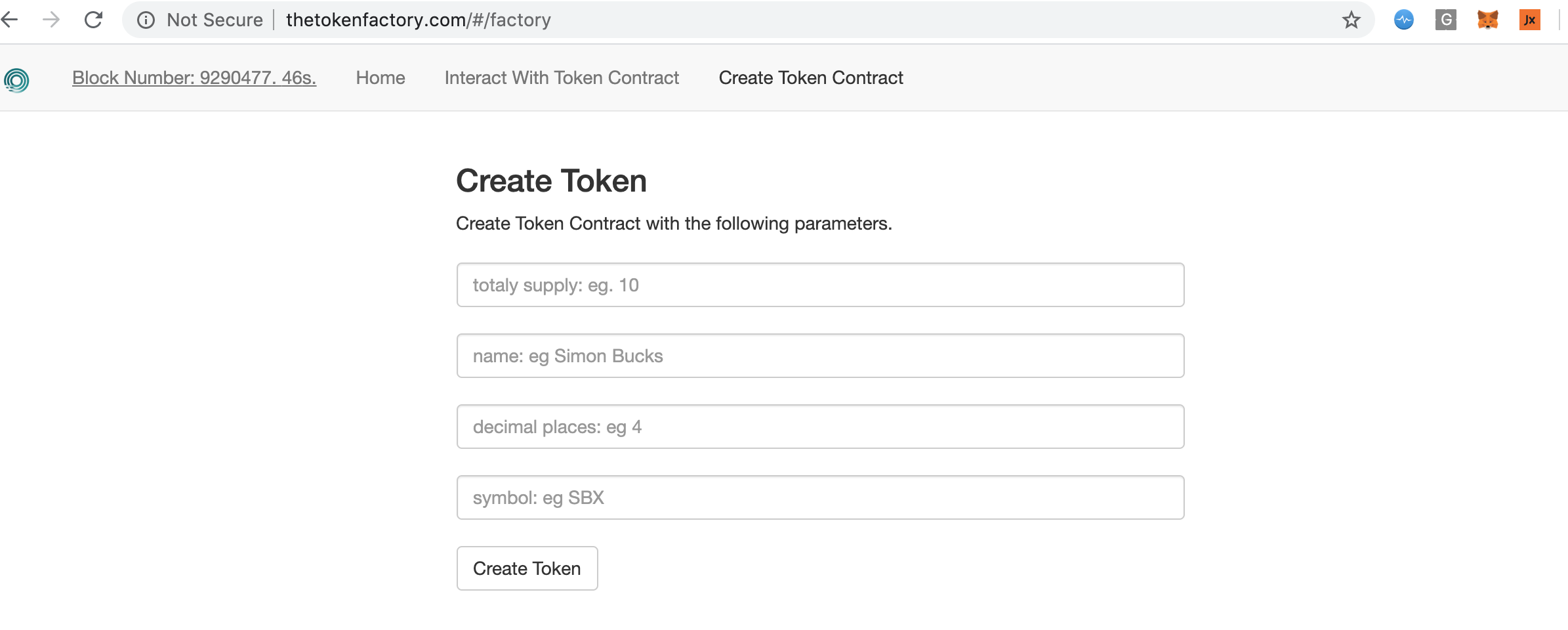
A coin/token taxonomy by function
-
native to a blockchain for payment
-
examples: Bitcoin, Bitcoin Cash, Ether, Lumens, Cardano
- build on top of or linked to an existing blockchain
- not just for payments ...
Crypto-currency
link to on-chain activities
link to off-chain activities or assets
Stable coins
- blockchain is a value transfer infrastructure
- claims to revenues, cash flows, assets (e.g. real estate)
Three Fallacies for Crypto Economics
crypto assets = traditional equities
crypto trading = traditional trading
crypto entities = traditional firms

Crypto


Exchange
Traditional
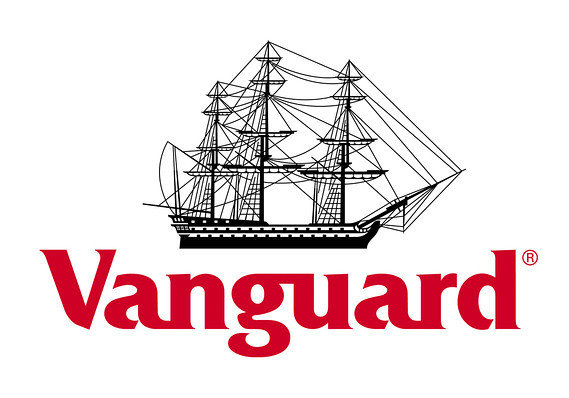

Internalizer
Wholeseller
Darkpool


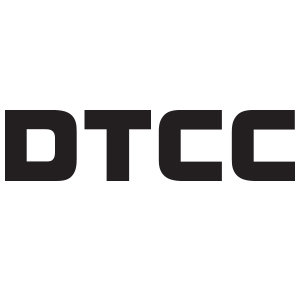
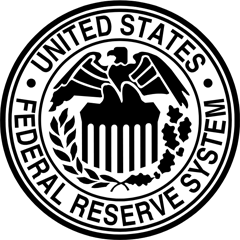






Investor
Venue
Broker
Settlement
Investor
Venue
Settlement
On chain
Concerns
arbitrage is either not possible or requires large capital commitment => expensive
exchanges = brokers? => single point of failure
decentralized: totally anonymous => easy price manipulation (e.g. wash trades)
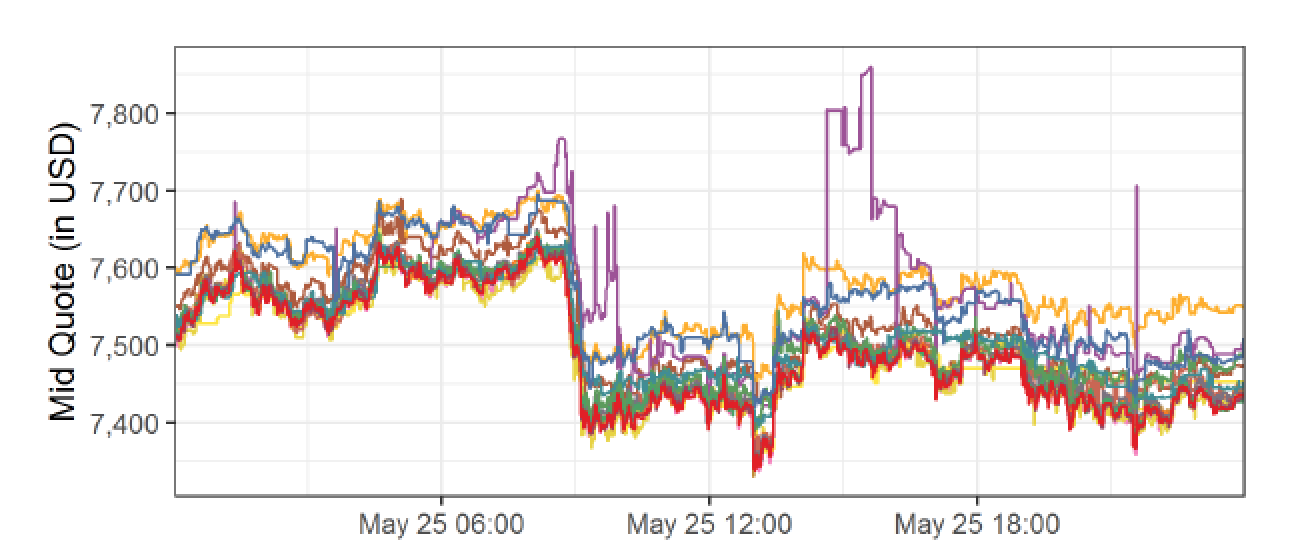
Bitcoin prices in USD, May 25 2018, 17 exchanges
Arbitrage?
Where does trading occur?
Trading in Crypto Markets
Centralized Exchanges
Alternative Markets/Liquidity Systems
Smart on-chain contracts ("Decentralized Exchanges")




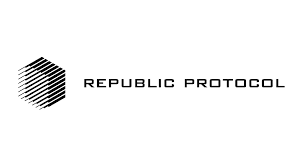



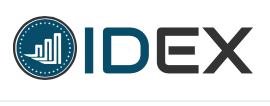

Trading on a Crypto Exchange


trade


Settle on the blockchain for digital "assets"

Wire transfer for fiat
Arbitrage on a Crypto Exchange


BTC/USD
ask: 7,600
bid: 7,550
BTC/USD
ask: 7,500
bid: 7,450
buy low
sell high
Arbitrage on a Crypto Exchange


BTC/USD
ask: 7,600
bid: 7,550
BTC/USD
ask: 7,500
bid: 7,450
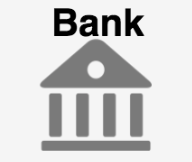
buy BTC
sell BTC
move BTC to Kraken


Arbitrage on a Crypto Exchange





Wire: free*; 1-5 days
Credit card: 3.5%
trading fee: 10-25 bps
flat fee in BTC \(\approx\) $4-8
\(\approx\) 10-60 minutes
trading fee: 0-26 bps
35 USD + 0.125%
($5 if >$50,000)
1-3 business days;
possible other fees/delays
Some exchanges allow short selling

What's the result?
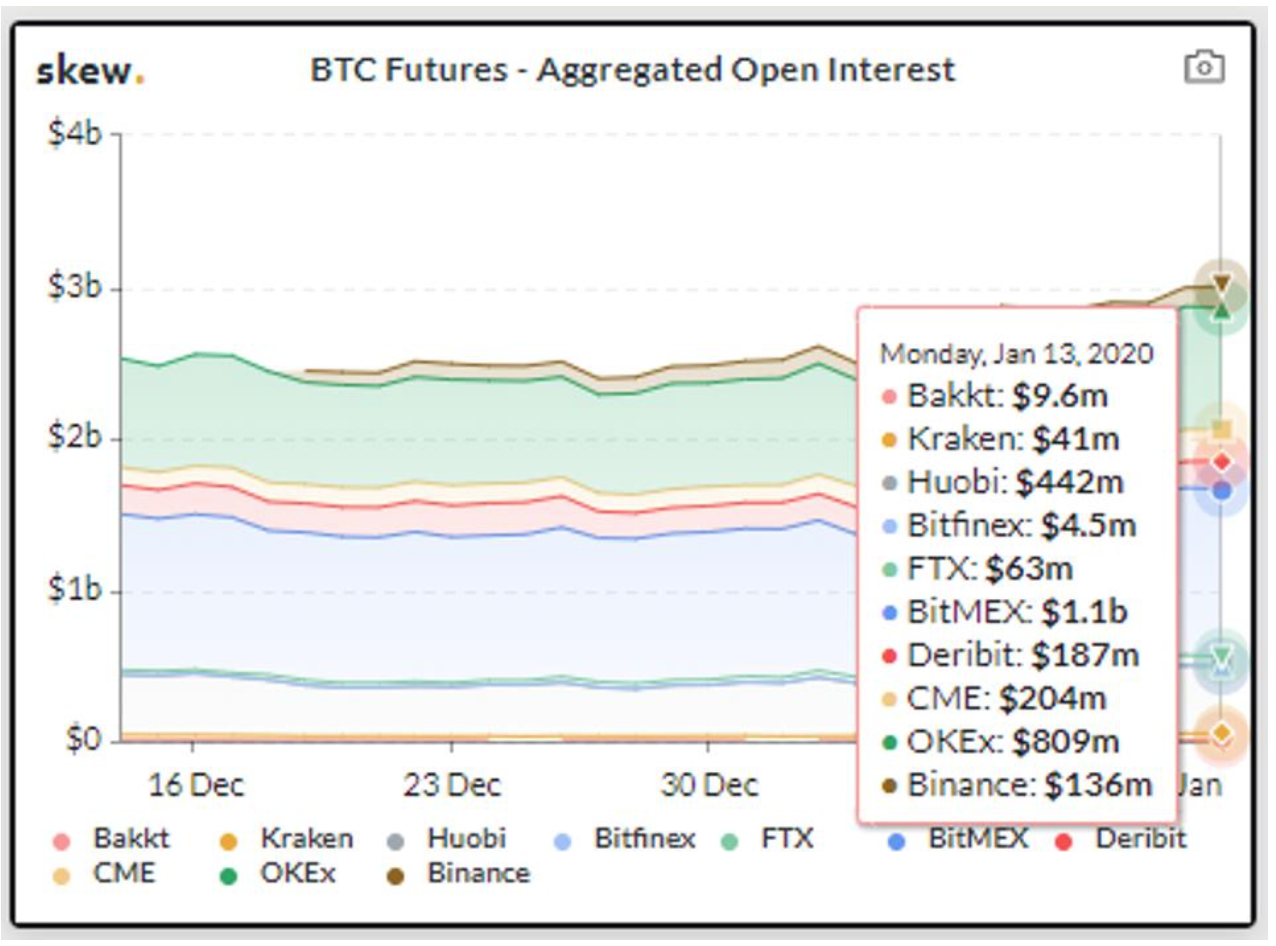
Regulated Exchanges
Derivatives trade mostly offshore! Unregulated(?!)

"Just in"
(Jan 13, 2020)
Spirit of Blockchain: Fully decentralized
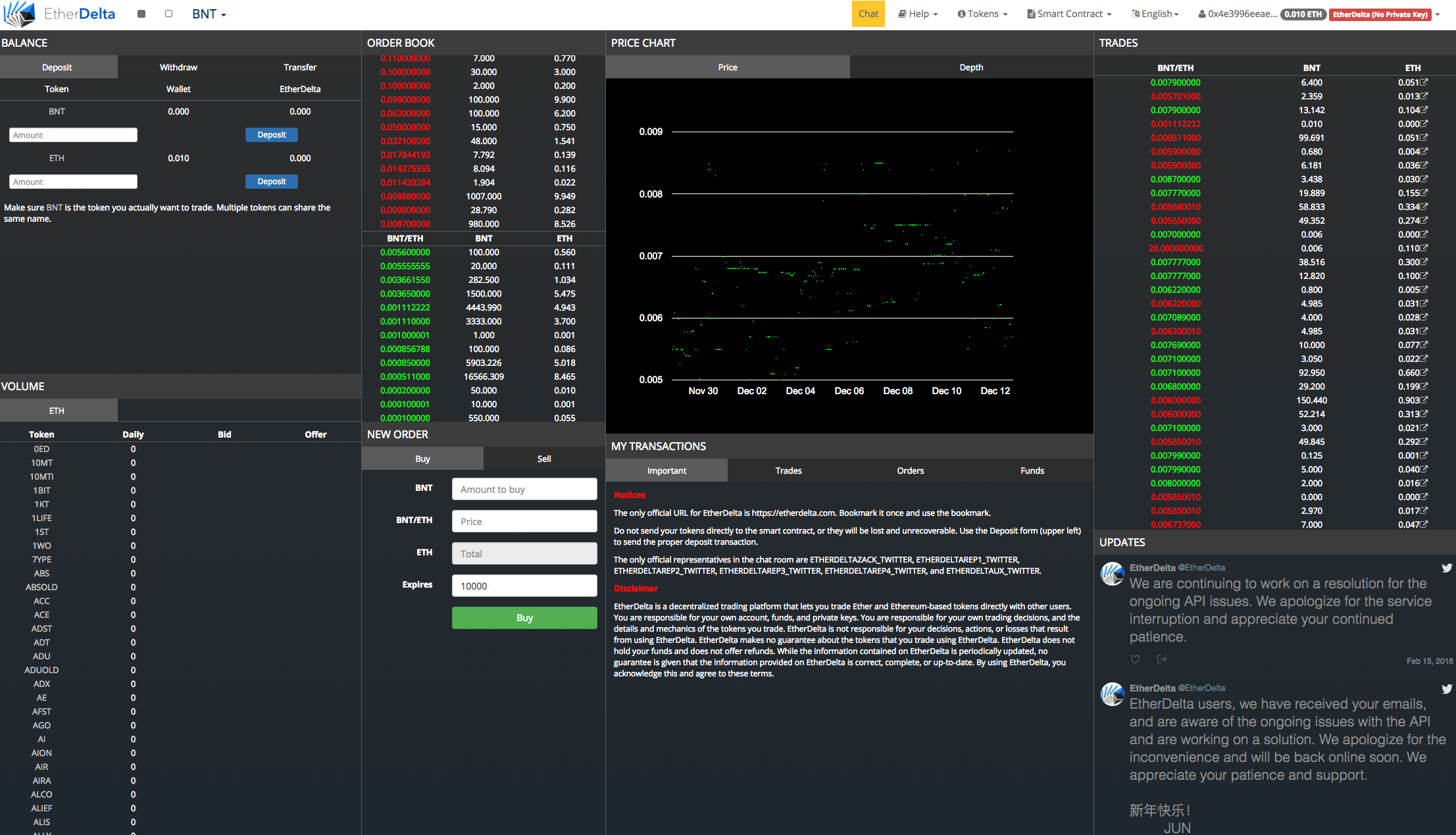
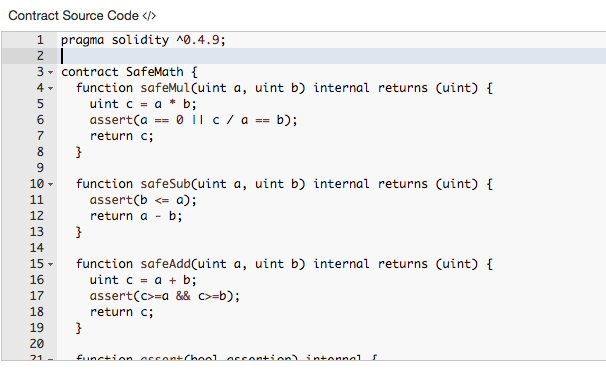
... 300 lines of code ...
standard trading rules practically impossible to enforce
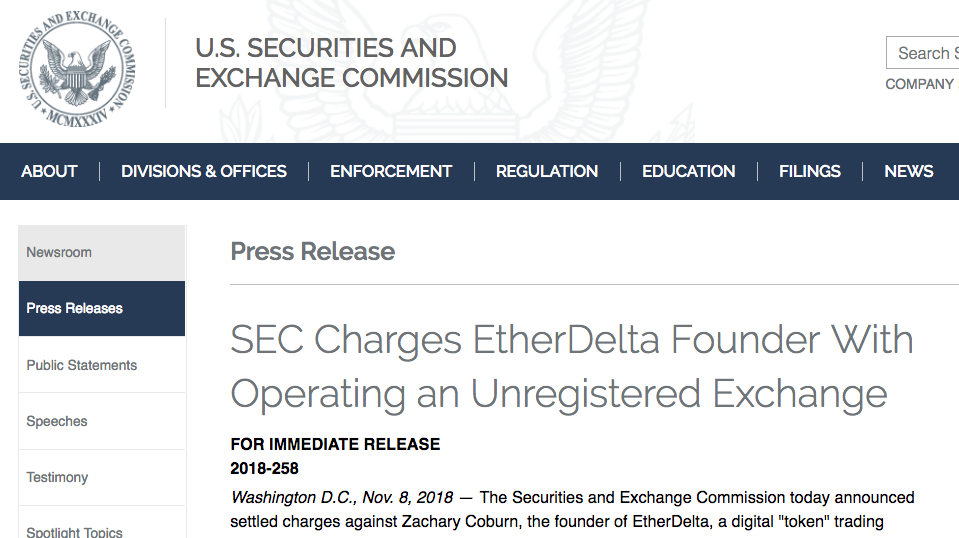
Crypto exchanges are a security risk



August 2016
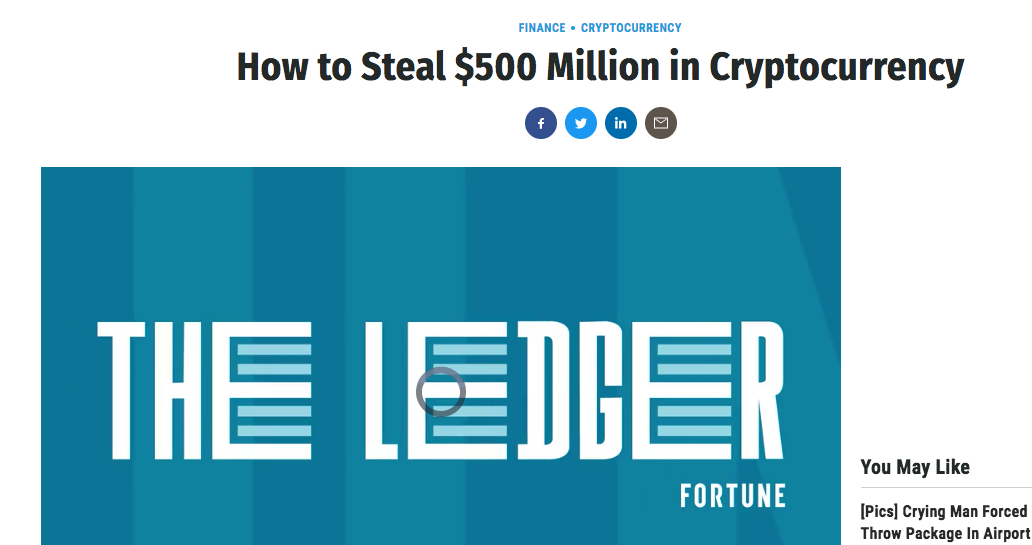

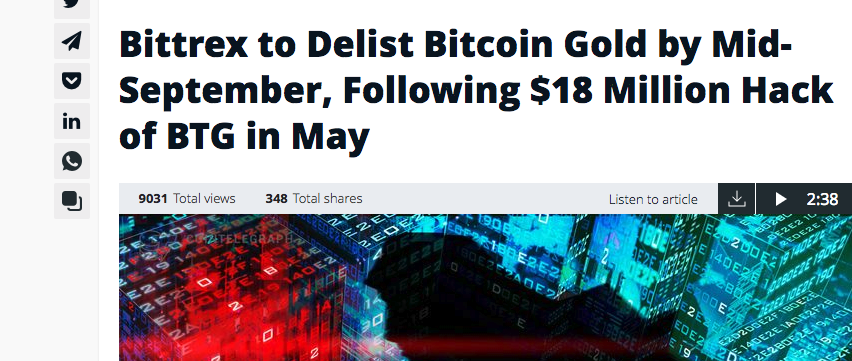


Crypto exchanges are a security risk


https://www.forbes.com/sites/jasonbrett/2019/12/19/congress-considers-federal-crypto-regulators-in-new-cryptocurrency-act-of-2020/#7ddcdfd65fcd
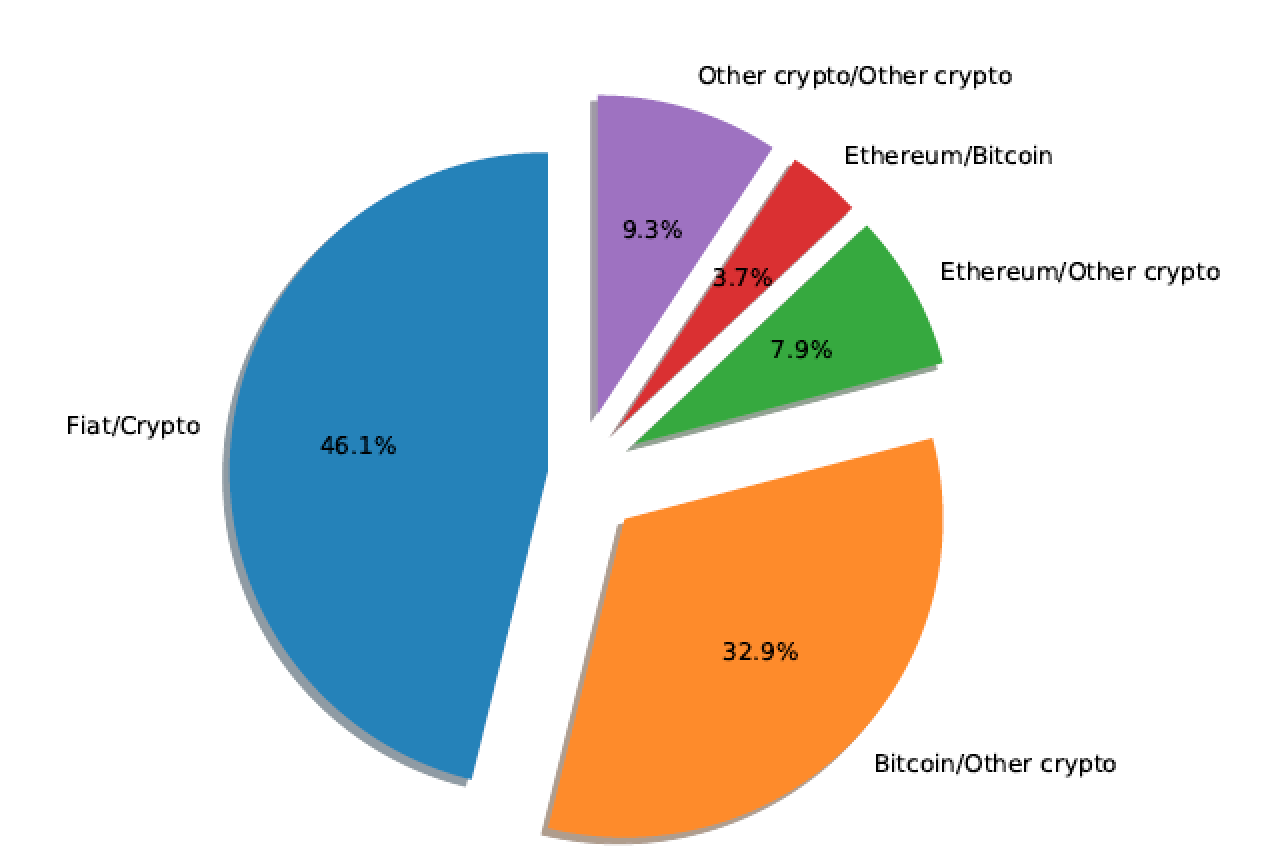
Some trading data
based on Khapko, Malinova, Park, and Zoican (2018)
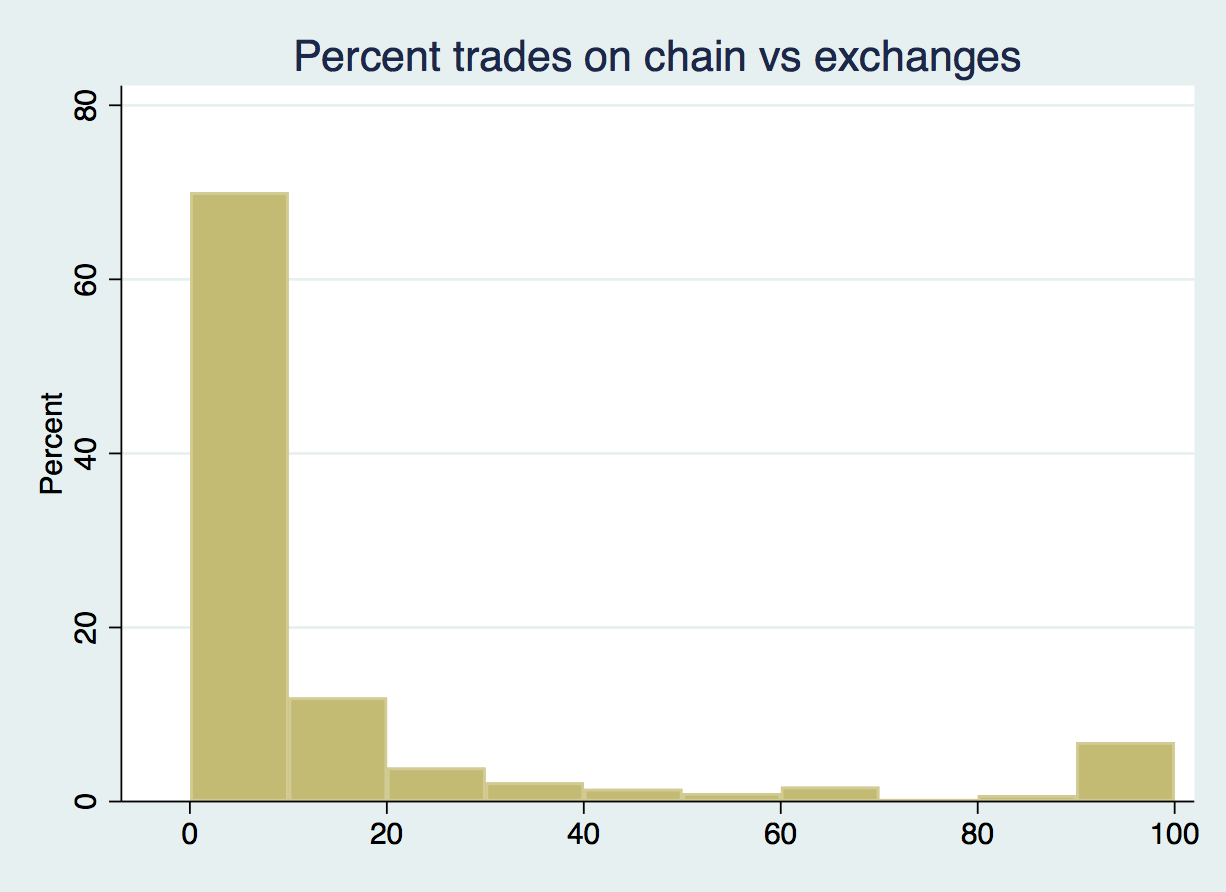
Distribution of changes in beneficiary ownership
most tokens stay at exchanges and don't get settled on the blockchain
some usage tokens are "in use"
Transactions costs
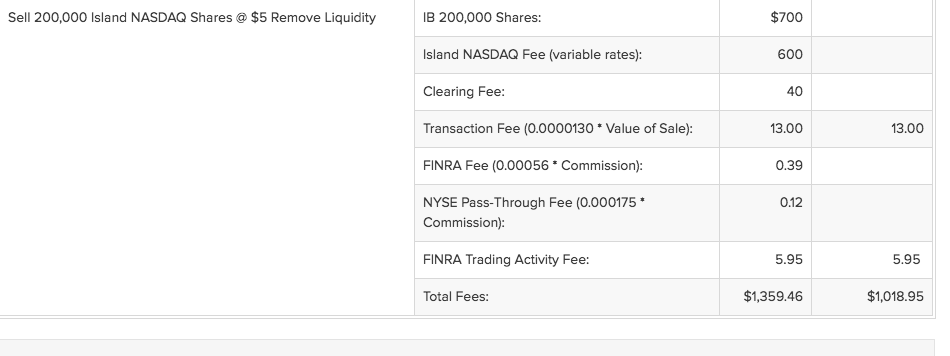
Source: Interactive Brokers
Broker
Level
crypto exchange fees for $1,000,000 market order
account
wire/in-out
-
25 bps = 2,500 trading fee
-
in/out fee 0.1% - 3%
-
mining fee ($0.25)
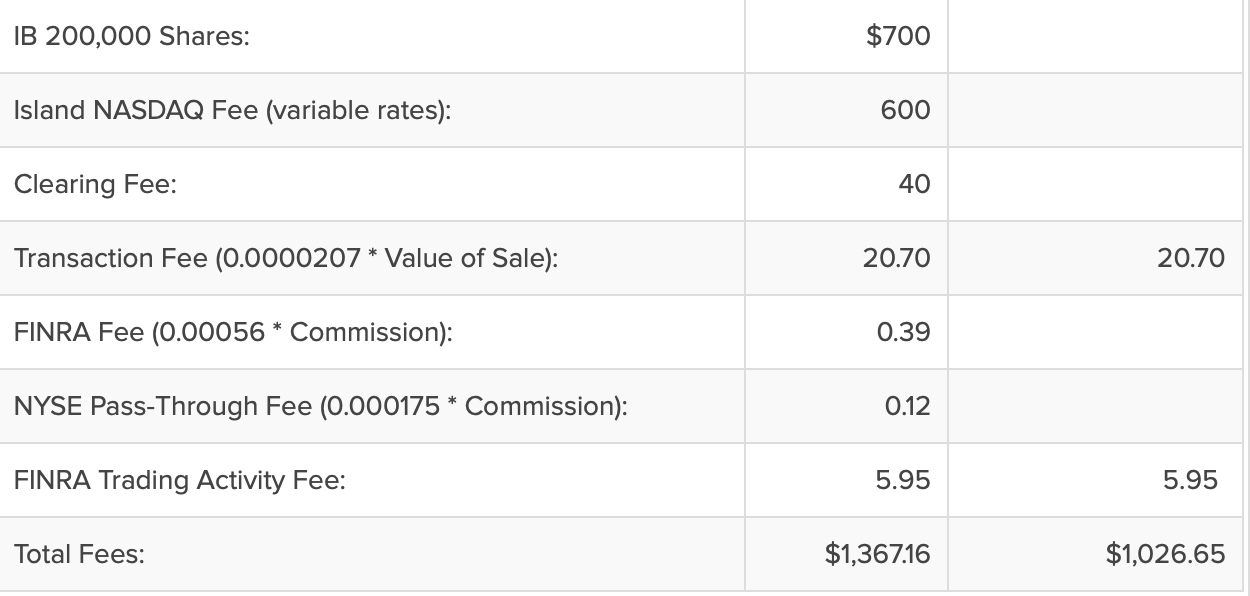

$1,000,000 market order